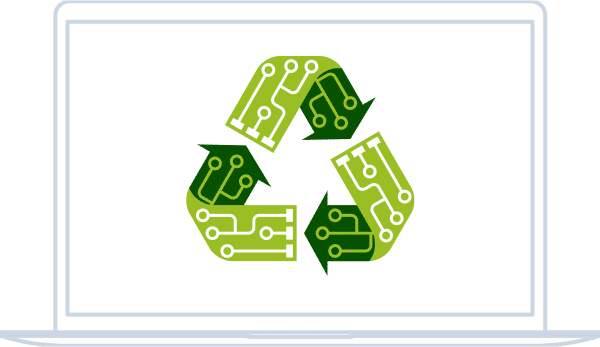Unlock value from your ageing fleet to help support your next wave of innovation
In partnership with HPE Financial Services (HPEFS) Technology Renewal Centre, based near Glasgow, DTP provides comprehensive IT asset disposal solutions that enable you to fund fleet modernisation and ensure effective end of life management of legacy assets.
Beyond simple equipment removal, our services include thorough certified data sanitisation and environmentally responsible disposal, upcycling, and recycling, all designed to protect your business, and the planet.
Enter your device details into the calculator below to discover the value it holds for your organisation.
Device Calculator
How much is your device worth?
Simply share five details with us, and we’ll provide you with an instant, estimated cost per unit – fast and effortless!

Recycle responsibly
* The hardware is assumed to be fully functional, free of BIOS password protection, without a broken or cracked LCD screen, missing parts, etching or engraving and is cosmetically acceptable with no major scratches or dents.
GET IN TOUCH TO REFRESH YOUR TECH
Use the contact form on this page or email hello@dtpgroup.co.uk



